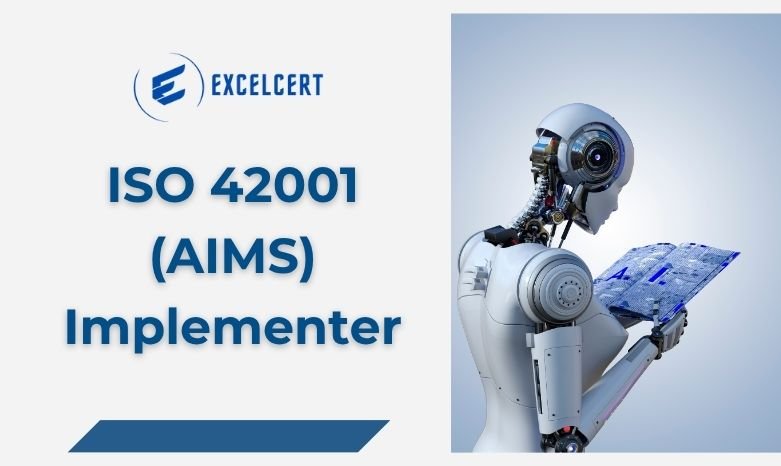Exam Details
Empowering Auditors to Navigate the Future of AI Governance and Compliance
As Artificial Intelligence continues to transform industries, organizations face new challenges in ensuring the ethical use, regulatory compliance, and risk management of AI systems. The Certified Internal AI Auditor (CIAIA) certification is designed to equip internal auditors, compliance professionals, and risk managers with the expertise to audit AI technologies effectively and responsibly.
This globally relevant certification provides a structured approach to understanding AI systems, evaluating AI risks, assessing governance frameworks, and conducting comprehensive AI audits across the AI lifecycle.
Module 1: Introduction to Artificial Intelligence and Auditing
-
- Basics of Artificial Intelligence and Machine Learning
- Types of AI (Narrow AI, General AI, Generative AI)
- Key AI technologies (NLP, Computer Vision, Robotics, Expert Systems)
- AI Lifecycle Overview
- Importance and Scope of AI Auditing
- Roles and Responsibilities of an AI Auditor
Module 2: AI Governance and Risk Management
-
- AI Governance Frameworks (OECD, EU AI Act, ISO/IEC 42001)
- Ethical Principles of AI (Fairness, Transparency, Accountability)
- AI Risk Categories (Operational, Reputational, Legal, Technical)
- AI Risk Assessment Techniques
- AI Governance Policies and Procedures
- Stakeholder Engagement and Escalation Mechanisms
Module 3: AI Regulatory and Compliance Landscape
-
- Global AI Regulatory Overview (EU AI Act, US NIST AI RMF, ISO Standards)
- Legal and Ethical Considerations (Bias, Discrimination, Consent)
- Data Protection Laws (GDPR, HIPAA, CCPA) and AI
- AI Audit Trail and Documentation Requirements
- Emerging AI Laws and Cross-Border Issues
Module 4: Internal Audit Framework for AI Systems
-
- Internal Audit Fundamentals and Methodologies
- Risk-Based Audit Planning for AI
- Control Objectives for AI Systems
- Creating AI Audit Programs and Checklists
- Auditing AI Governance, Model Management, and Data Quality
- Sampling, Testing, and Interview Techniques for AI Systems
Module 5: Auditing the AI Lifecycle
-
- Auditing AI Strategy and Business Alignment
- Auditing Data Collection and Preprocessing
- Auditing Model Development and Training
- Auditing AI Model Deployment and Monitoring
- Change Management and Continuous Learning in AI Systems
- Auditing AI System Retirement and Decommissioning
Module 6: AI Model Explainability, Fairness, and Bias
-
- Explainability Techniques (LIME, SHAP, Model Cards)
- Bias Detection and Mitigation Strategies
- Fairness Metrics and KPIs
- Interpretable vs Black-box Models
- Case Studies on Discrimination and Bias in AI Systems
Module 7: Cybersecurity and Data Integrity in AI Systems
-
- AI-Specific Threats (Model Poisoning, Adversarial Attacks)
- Data Integrity Controls
- Secure AI System Design and Architecture
- Logging, Monitoring, and Alerting for AI Systems
- Incident Response Planning for AI Failures
Module 8: Reporting, Recommendations, and Continuous Improvement
-
- AI Audit Report Preparation
- Key Audit Findings and Risk Ratings
- Communication with Management and the Board
- Remediation and Follow-up Process
- Continuous Improvement and Lessons Learned
- Integration with Enterprise Risk Management (ERM)
Exam Benefits
• Understand the architecture and lifecycle of AI systems, • Identify and assess AI-related risks and controls, • Audit AI governance, data practices, and model transparency, • Evaluate compliance with ethical, legal, and regulatory requirements, • Report audit findings and recommend improvements effectively
Who Should Attend
• Internal Auditors, • Risk and Compliance Professionals, • Data Privacy and Governance Officers, • AI/IT Audit Specialists, • ISMS, Quality & BCMS Auditors, • Professionals involved in AI oversight and assurance
Exam Syllabus
Covers AI fundamentals, governance, ethics, and regulatory frameworks, Equips you to audit data integrity, algorithmic fairness, and model explainability, Aligned with international standards such as ISO/IEC 42001, EU AI Act, and NIST AI RMF, Includes real-world case studies and a capstone audit simulation
Exam Details
Exam Duration - 120 Min, Exam Pattern – MCQs, Number of Questions: 50, Passing Marks: 35, Exam Method – Online Open Book: No, Exam Pass Mark - 70% (35 out of 50) Exam Result - Immediate










